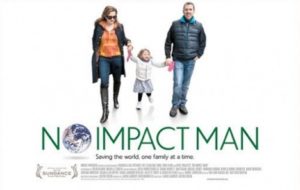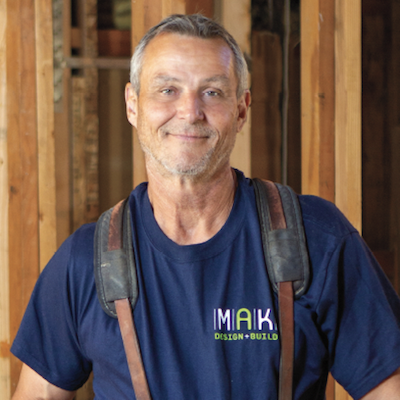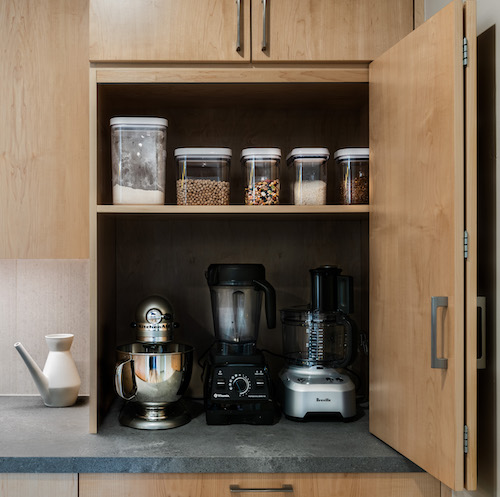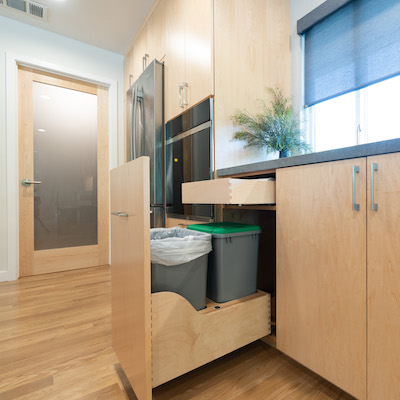
I have mentioned this before, but I have a bit of a pet-peeve with the green living stereotype of the social recluses who live solely off the land and wear nothing but hand-spun natural fiber clothes, milking their own goats and tending bee hives for their own honey. If you can live this way, congratulations – but what about the rest of us? When these extremes are held up as the standard of green living the rest of us feel like sustainable living is not only unattainable, but undesirable as well.
On the other hand, the resources available on this planet are not going to sustain our luxurious lifestyles forever, at least not without great cost, especially as we export these lifestyles to even more populous parts of the world. This isn’t about loving Mother Earth or an innate love of hemp, it’s about a long-term solution for all of us to continue to enjoy a good standard of living while being able to offer that standard of living to our children and theirs. At least, that’s how I see it. It’s about practicality, not idealism.
With such opinions, I went nervously to the Davis screening of the “No Impact Man” movie in February. The Davis showing was enthusiastic – I am guessing several folks had seen the movie before. I am also guessing some of those in attendance do actually live in rammed earth houses and only wear hemp. But there was a fair sprinkling of average-carbon-usage families as well.
The documentary chronicles the year-long experiment of a New York City family to reduce their environmental impact to zero. The husband is all for this – he is in fact blogging about their experience and making a book and movie based on their endeavors, so the reward factor is pretty high for him. His wife, who loves shopping, coffee, and eating out, is a little more wary. Their young daughter provides some practical concerns, such as the need for refrigerated milk after the refrigerator is unplugged, and needing diapers (or an equivalent waste containment system) even though the family is now committed to not throwing anything away.
I thought the premise for the experiment was a bit naïve at best. I don’t think we can ever truly achieve ZERO impact, although we can, I believe, work towards making smarter impacts. The movie family pursued their goal will full gusto and none of my pessimism. They committed to give up their car, refrigerator, lights (and the rest of their electricity), coffee habit, toilet paper, air conditioning (including sweltering through NYC in summer), even ice cubes (which the still wife sneaks while she’s at work). But I was still wary – if you can’t live up to this sort of stoicism and inconvenience – well, why bother? I worry that people check out at this point. We don’t all want to eat rutabagas all winter long until our local produce starts sprouting again.
I was actually pleasantly surprised by the movie. The husband was less righteous than I expected. He was trying these radical ideas out for the first time himself, more out of curiosity, it seemed, than to prove anything. The wife was endearingly overwhelmed by her new lifestyle – but she might be my new personal hero for giving the seemingly-impossible a go (over and over). The movie is full of adorable family-bonding moments – a dance party in the bathtub to wash clothes (kind of like a grape-stomping but with dirty socks and detergent instead of fruit), candlelight card games and bed time stories, even a “cutting the power” party with friends, candles, and local grub. Some of this smacked of syrupy idealism – but mostly I was reminded how small steps really can propel us down roads of new understanding and abilities. By the way, the family did not stick to their extremism after the year-long experiment, but they did adopt several new habits permanently as a result.
The film made me laugh a lot and I took comfort in the reality that even small changes have impacts – at the very least on our perspectives, if not on planetary resource management. It was also fascinating to see how taking the less convenient, less wasteful road caused this family to deepen and extend their relationships. They spent more time interacting with each other, talking and playing with friends, and meeting many new people as they tried to find local resources for their food and goods. I had written off the relational component of local-living as cliché or hype, but in the movie and in my own life, it has proven true.
Sometimes such changes seem insignificant in the face of all of the problems ahead of us. Of course we all wonder if personal changes will really make a global impact. Does giving up toilet paper change anything besides our level of discomfort and our friends’ willingness to invite us over?
I tire of schlepping my reusable lunch and coffee supplies to and from work every day, instead of buying food and packaging I could just toss after using. Sure, my new pack rat status saves money and trips to the store by reusing my containers, and theoretically reducing the amount of packaging and fuel by buying in bulk and cooking at home. But more than that, I have a different way of seeing waste, of valuing the “things” in my life, of what it means to buy and eat food. When we do splurge, it feels more rewarding and exciting to do so. That to me is what the movie best offered – the reminder that we have choices, we have options, and that there are positive personal benefits for us, in our lives now, for making these sorts of changes.
Most of us aren’t going to get to “No Impact” (the movie-family actually didn’t get there either), but thinking about how we can make smarter impacts can lead to greater creativity, better systems, and workable models that make sense for the long-term. In the process, we might even develop more relationships within our community and sustain our shared resources to boot. For me, that sort of challenge and discovery is worthwhile – but I’m still not giving up the toilet paper.



